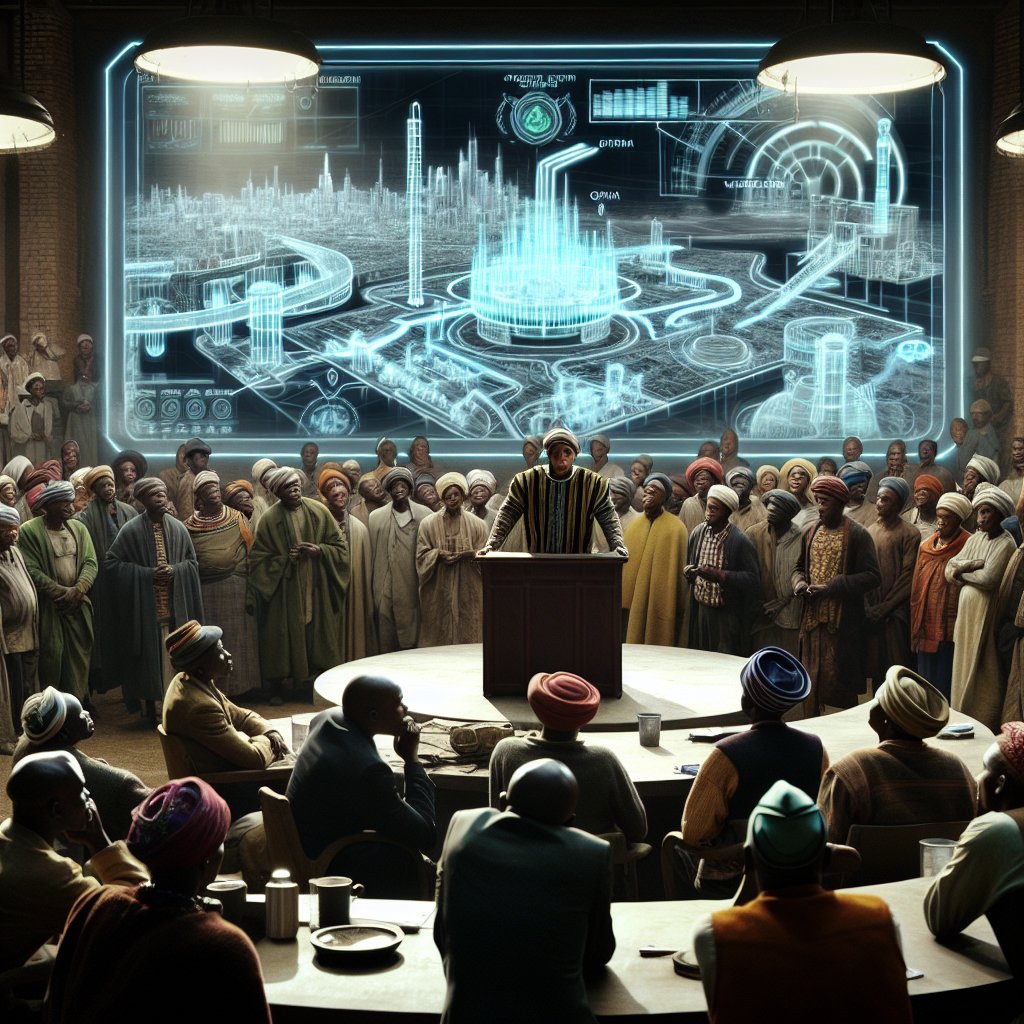Image created by AI
Minister Senzo Mchunu's April Water Promise Clashes with Department Statement in eThekwini
In a recent assembly of KwaXimba residents, fraught with frustration over protracted water shortages, South African Minister of Water and Sanitation, Senzo Mchunu, made a bold pledge to the community. His promise to return tap water to the embattled residents by April raised both hopes and eyebrows. Yet, this vow stands in stark contrast to a departmental statement undercutting the minister’s timeline for water restoration.
Addressing a beleaguered crowd at the Inkosi Masinga Sports Centre, the Minister, who was two hours behind the scheduled time, stated, “I want to put my head on the block that in April water will be restored in the area.” His conviction was unmistakable as he beckoned all to bear witness to the imminent solution of a crisis that has left taps dry for over seven years in certain locales.
KwaXimba has seen its share of protests due to these water shortages, with residents demonstrating their desperation for a basic amenity most take for granted. The residents' only transient respite from this thirst comes sporadically following these uprisings, providing water for about a week before the familiar drought returns.
However, the minister's promise soon hit a wall of reality. A media statement by the Department of Water and Sanitation, released the day after Mchunu's pledge, painted a contradictory picture. None of the proposed initiatives, including an urgently needed wastewater treatment plant in Mvini, are scheduled for completion by April. Indeed, this facility’s expected operational date is pegged for mid-May at the earliest.
Moreover, the long-term solution stipulated—the Upper Mkhomazi scheme—intends to funnel an additional 400 megalitres per day via the western aqueduct but isn’t due for completion until 2030. This scheme’s eventual realization seems a distant glimmer for the residents currently deprived of a basic human necessity.
When pressed about the April timeline, the minister’s spokesperson, Kamokgelo Mokgotsi, diverted the issue to the City, “The City is the water services authority. As a department, we are assisting them to fast-track their projects.”
Residents have taken little comfort from the shifting responsibilities between the municipality and national department. Hlengiwe Mkhize, a local, outlined that municipal officials often make an appearance only post-protests. Given the gravity of their situation — where water trucks fail to navigate the area, compelling inhabitants to fetch water from remote locations — the situation remains dire. Mlungisi Ngcobo conveyed the plight of fetching "very dirty" river water in the absence of water trucks.
Furthermore, the media statement elucidated that a power outage at Midmar Dam further complicated matters by distressing the western aqueduct's water supply, impacting multiple areas. While the supply from the aqueduct was restored as of 19 February, consistency in water delivery continues to be insufficient and unreliable.
The disconnect between the minister’s assertions and the department’s subsequent releases has not only incited skepticism but highlighted the systemic complexities of addressing such infrastructural deficits. The time-sensitive nature of this water crisis demands comprehensive, coordinated, and expedited solutions, not conflicting communications.
With the April timeline in question, the residents of KwaXimba hold their breath, hoping for a resolution that seems trapped in a cycle of promises and delays as they grapple with a water crisis that has persisted far too long.










